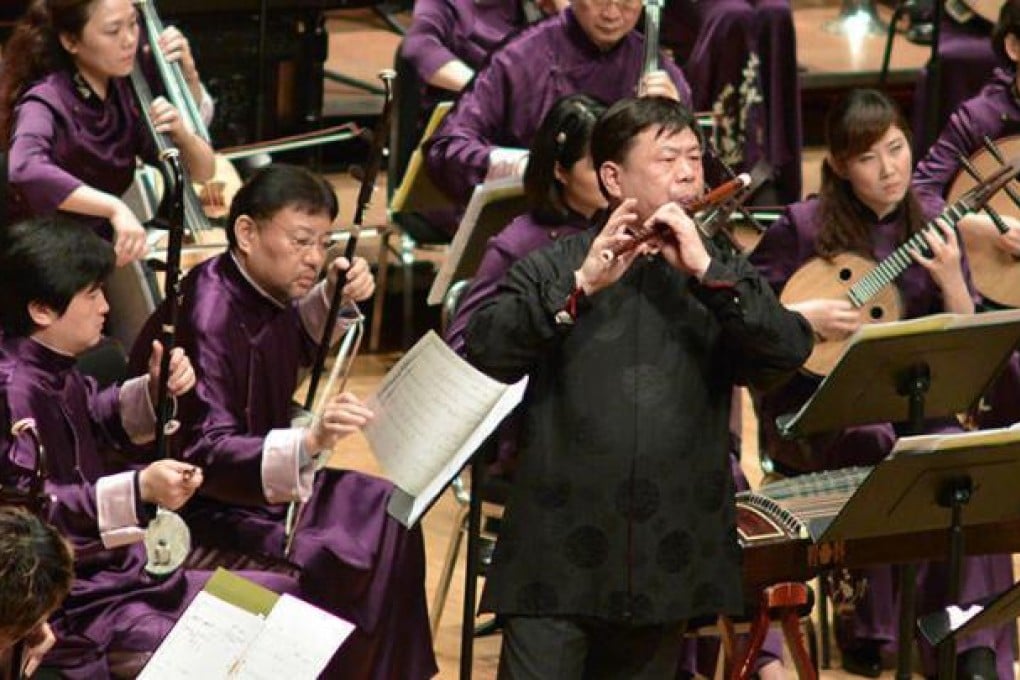Reviews: Hong Kong Chinese Orchestra, Hong Kong Philharmonic
Rarely does one find a Chinese classical concert on the theme of love without the overplayed Butterfly Lovers' Violin Concerto. The four works performed at last weekend's Hong Kong Chinese Orchestra concert came from a list of some 2,000 works it commissioned and premiered.

Rarely does one find a Chinese classical concert on the theme of love without the overplayed Butterfly Lovers' Violin Concerto. The four works performed at last weekend's Hong Kong Chinese Orchestra concert came from a list of some 2,000 works it commissioned and premiered.
The first, Overture to Romance of the Eastern Sea, was composed in 1982 and premiered by then music director Ng Tai-kong. Under the baton of resident conductor Chew Hee-chiat, the orchestra carried a much thicker timbre and stronger attack in tutti passages than the rendition by scrupulous artistic chief Yan Huichang. This was most evident in the opening orchestral fanfare setting the scene for the love story between the Dragon Princess by the sea and a woodcutter mortal. While the erhu theme was enchanting, the plucked string section lacked unison. The bass suona played a lovely theme, beautifully accompanied by the huqin on soft tremolo.
Lovers in Turbulent Times is an erhu concerto that premiered in 1987 with its composer, He Zhanhao, conducting. It tells a tragic story of two lovers from families similar to those of Romeo and Juliet. Soloist Zhang Chongxue, the orchestra's acting erhu principal, navigated through its roller coaster-like emotions on the two-string fiddle. Her lyricism was at its best in the slow movement in a duet first with the guzheng and then the pipa.
In Legend of the White Snake, the orchestra's dizi principal Sun Yongzhi (left) showed his virtuosity in all four movements of the story about the forbidden love between mortal and immortal. Sun's solid technique awed the audience from the first notes, and he remained at ease and above the orchestra as the story unfolded. Rock-solid technique aside, there were passages, such as the snake fairy's plea for the return of her husband, that could have used some articulation. But the dizi's strong presence in the tutti passage, depicting the fight between the supernaturals, showed the lady at her toughest.
The concert concluded with The Return of the Condor Heroes, which local veteran composer Chen Neng-chi wrote as a tribute to the story's author, Louis Cha Leung-yung. The erhu-zhonghu duet was memorable. The triumphant march in the finale that signified a reunion after tribulations was balanced by a charming encore, Send Me a Rose.